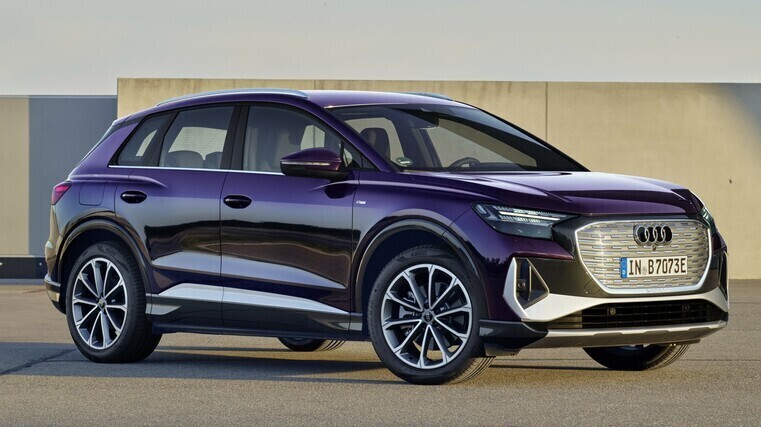VW lowers factory output

The Volkswagen Group is cutting production at factories in Germany where VW, Audi and Cupra battery-electric cars on the back of slower-than-expected demand for EVs.
Its factory in Zwickau will stop production for a week starting on October 6 due to weakening sales of the Audi Q4 E-tron, pictured.
The model is being impacted by American tariffs and Germany’s push to soften the EU’s ban on new sales of new vehicles with internal combustion engines.
Work will also be suspended at VW’s Dresden plant for one week next month. The factory in Emden plant, which builds the VW ID.4 and ID7, has reduced staff hours and is also expected to halt productions for several days.
Overall though, the group has been boosted by increased sales of its EVs. For example, the Volkswagen brand came top of August’s sales ladder for fully electric models. That said, the overall pace of growth has been slower and more uneven than anticipated, leaving retooled factories with excess capacity.
Robert Bosch’s plan to slash 13,000 extra job shows how the decline of Germany’s automotive industry is rippling through Europe’s biggest economy.
In addition to falling demand, carmakers there are having to content with rising labour and energy costs a as well as intensifying competition from Chinese rivals. They have poured billions of euros into battery technology only to find out that the shift to EVs will be slower than expected.
Bosch’s peers – Continental, Schaeffler and ZF Friedrichshafen – are also cutting jobs and expenses, while Porsche and Ford are reducing staff and output to offset weak sales and the impact of US tariffs.
Overall, Germany’s automotive sector has lost around 55,000 jobs over the past two years. Tens of thousands of additional positions are set to disappear by 2030 in an industry that employs more than 700,000 people.
Stellantis is also cutting production because of the slow market by pausing production at six plants across Europe.





